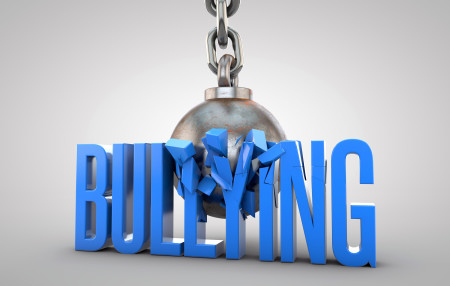The Physical Signs Of Bullying In Children
New stepdads may find it takes time to build strong enough bond that your stepkids can feel comfortable turning to you to express their hopes, fears and problems. Even when time has passed and you feel your bond couldn’t be stronger some things can still take you by surprise.
Issues such as eating disorders which, contrary to popular belief, don’t always express themselves through weight loss. Bullying a subject which continues to plague our children and youth, despite attempts at greater awareness, and the many programs set up in schools to battle this harmful practice.
Bullying in children can take us by surprise because some people are simply more outspoken than others. Bullying is a subject shrouded in shame and stigma so often, a child may be embarrassed to admit they’re victims at school or in social media.
In this post, we focus on some of the most common physical signs of bullying in children. If your child is suffering from any of these effects, make sure they get the help they need. Recent studies have shown the effects of bullying last way into adulthood and can include both physical and emotional problems: heart, depression and anxiety.
The most common physical signs:
- Headaches: Bullying is extremely stressful to the body and far from being a merely psychological malaise, it causes a rise in the stress hormone, cortisol, which can increase the likelihood of painful headaches. Children complaining of regular headaches should receive help as soon as possible, since worrying about the headaches themselves will only increase stress and start a difficult cycle to exit.
- Muscle Pain: Stress causes us to unwittingly tense up particular muscles in the neck and chest and also the back and limbs. Pain is caused by altered blood flow and metabolic changes, as well as reduced levels of repair of damaged muscle fibers.
- Weight Changes: Children who are bullied can take refuge in food, bingeing or eating excessively. To the contrary, they can also refrain from eating as a form of self-punishment. A child who is bullied will often feel like the situation is completely out of their control, like there is nothing they can do to stop the bully.
Therefore, they may seek to establish control elsewhere in their lives and food is a typical way to do so. Once again, it’s vital a child receive they help they need to avoid the possibility of entering destructive eating patterns resulting in an eating disorder.
- Altered immunity: Children who are bullied can fall prey to colds, flus and other infections more easily. In times of stress, the way white blood cells function can be altered. Additionally, those who are bullied can resort to harmful habits, for instance, smoking and/or drinking as a means of escape. Sleeping late and eating less can also weaken the immune system.
- Heart health: Bullying can affect a child’s heart health, since persistent stress increases blood pressure and inflammation, considered a major risk for heart disease. Studies have shown the effects of bullying to show up in blood tests many years after the bullying has ceased, so a child who was bullied should receive therapy, to avoid or curtail any long-term effects.
Although it can take time for new stepdads to really know their kids and identify when something is wrong, it’s vital to be on the lookout for any signs they’re suffering in silence. This way, we can put an immediate stop to victimization and stop bullying from causing permanent damage to those we care about and love.
As a stepdad, you naturally want to develop a close relationship with your stepchildren. You’ve been told to expect awkward silences that need to be weathered. You will need to get to know the children and let them get to know you before a bond can form. Click here to get five tips for opening the lines of communication between you and your stepchildren.






